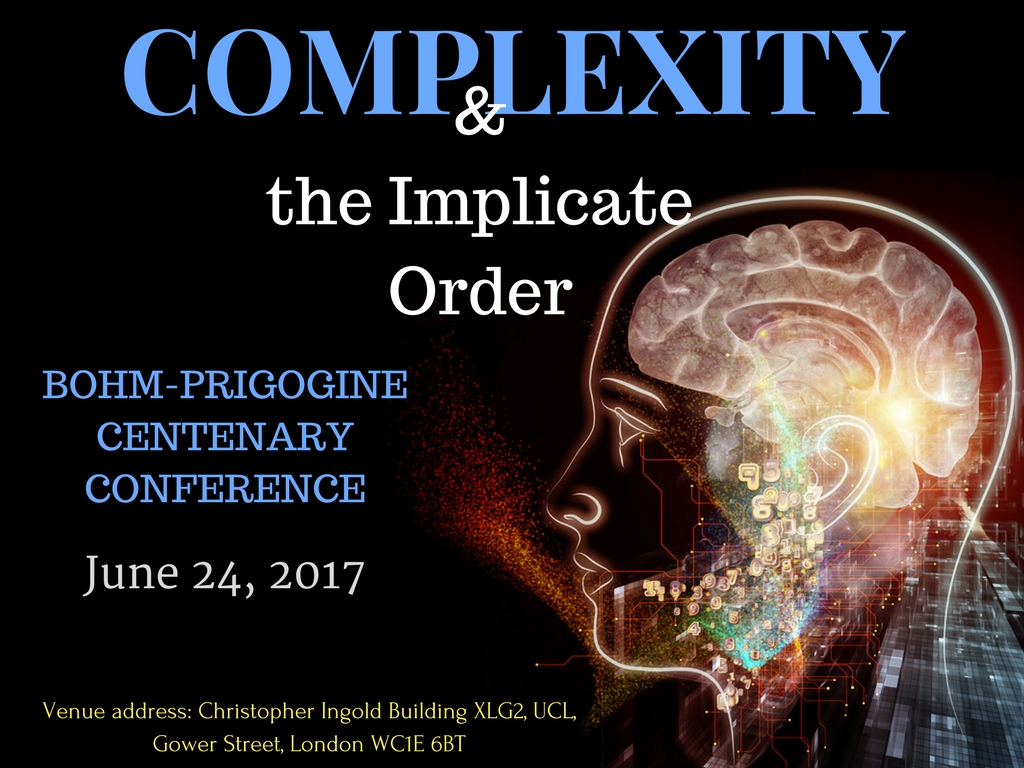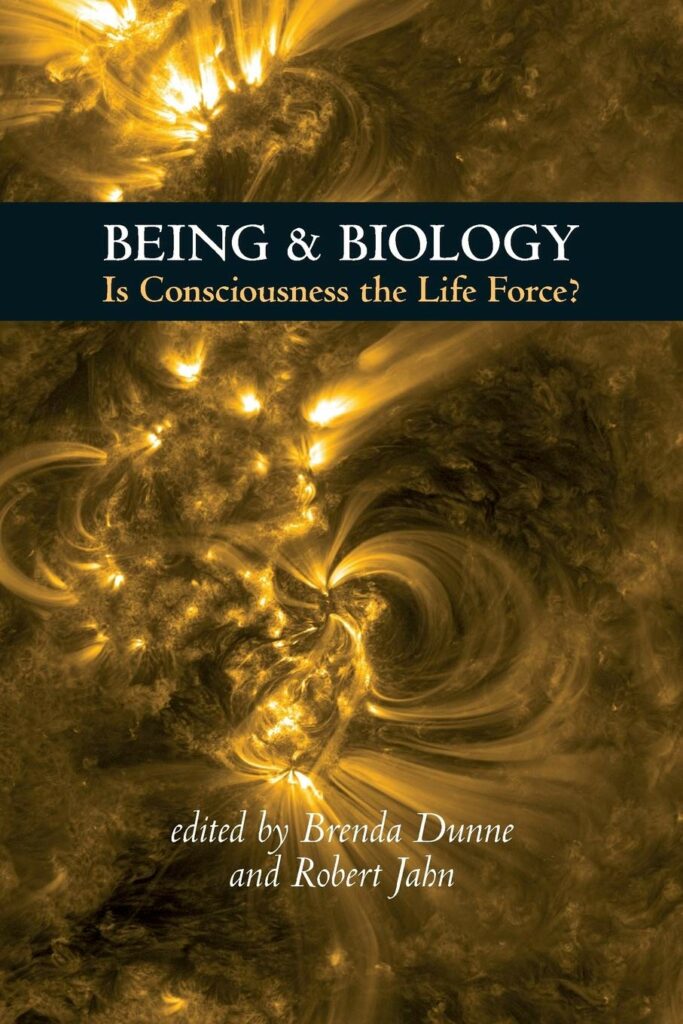Complexity and the Implicate Order Bohm-Prigogine Centenary Conference
Professor Peter Allen, Dr. Vasilieios Basios, Professor Basil Hiley
Chairs: David Lorimer, Bernard Carr
Venue address: Christopher Ingold Building, XLG2 Auditorium, UCL, Gordon Street, London WC1E 6BT
2017 marks the centenary of two of the most creative scientists of the 20th century, Prof David Bohm FRS (1917 – 1992) and Prof Vicomte Ilya Prigogine (1917 – 2004). Both men thought out-of-the-box, and introduced new and influential concepts that have had a wide reach outside their specialist fields. The Network arranged a weekend of dialogue with David Bohm in 1988, and a day with Ilya Prigogine in 1995, which was attended by more than 400 people. Both were Honorary Members. Addressed by experts who worked closely with both men, this centenary conference will consider their legacies and the extensive influence, showing how their ideas still shape our thinking.
Ilya Prigogine was awarded the Nobel Prize for Chemistry in 1977 for his work on self-organising systems and dissipative structures. Open systems try to maintain their existing dynamics by absorbing and adapting to external perturbations. We see this in our own lives when, after an illness, we try to ‘get back to normal’. We tend to resume our previous lifestyle, even if this was a contributory factor to our illness. If, however, the impact of the event is sufficiently great (as in a near-death experience) it reconfigures the whole system in a life-changing new dynamic. We literally become new people.
David Bohm’s work is key in at least two respects: the first is his distinction between what he called the implicate and the explicate orders. The implicate order is characterised by dynamic wholeness in flowing movement, while the explicate (literally unfolded as opposed to enfolded) shows us separation. For Bohm, implicate wholeness is primary and explicate separation is derived from it. The second aspect is his use of dialogue an exploratory process. Here, as with Bohm’s own dialogues with Krishnamurti, participants suspend their assumptions and engage in an open process of mutual exploration. If we applied such an approach to complex international negotiations where each party comes from a fixed position defined by their separate interests, outcomes might be very different.
So the processes of self-organisation in complex systems, new order arising out of chaos and an open process of dialogue have important implications for our individual and collective futures. We hope you can join us for what promises to be a memorable day.
We very much regret that David Peat is unable to join us for health reasons but we are working on being able to show some clips of him speaking about David Bohm and Bohm speaking with Krishnamurti.

PROGRAMME
9:15 Registration
9:50 David Lorimer and Bernard Carr – Introductions
10:10 The Life and Times of David Bohm in film presented by Paul Howard
At the Bohm Centennial Conference in London – Paul will discuss aspects of the life of David Bohm with reference to his upcoming production of Infinite Potential – the life and ideas of David Bohm Read more
10:45 David Edmund Moody – An Uncommon Collaboration
On the surface of events, it would be difficult to imagine a more unlikely collaboration between two historical figures than that of David Bohm and J. Krishnamurti. Read more
11:20 Coffee
11:50 Prof Basil Hiley – The Legacy of David Bohm: from Plasma Physics, through Quantum Mechanics to the Philosophy of Mind
Highlighting aspects of Bohm’s major contributions, mainly in the field of physics. Offering a flavour and spirit in which Bohm explored many difficult issues that still remain today. Read more
1:00 Lunch
2:15 Dr Vasilieios Basios – Unfolding Complexity: Chaos, Patterns and Creativity
Ilya Prigogine’s legacy is as multi-aspected as his scientific contributions, his ideas and his personality. He bravely introduced new concepts such as open systems’ thermodynamics, dissipative structures, self-organisation, irreversibility and time’s arrow, fluctuations, bifurcations, pattern formation, the emergence of non-linearities and the importance of historization in science. Read more
3:15 Stretch break
3.20 Prof Peter Allen – The Complexity of Human Systems
The importance of the ideas of Ilya Prigogine for our understanding of human systems cannot be underestimated. Prigogine himself was dedicated to understanding the deepest possible issues connected with irreversibility and the meaning of time, particularly in physics. Read more
4.20 Plenary discussion
5:00 Tea
Booking on-line is recommended – please scroll to the bottom of the page, but there is also a print ready booking form available here.
HOST ORGANISATION
The Scientific and Medical Network was founded in 1973 by George Blaker, Dr. Patrick Shackleton, Dr. Peter Leggett and Sir Kelvin Spencer. The founders believed that neither orthodox religion nor conventional science was sufficient to answer pressing questions about human existence and the cosmos, and that new ways of thinking were needed.
The Network provides interdisciplinary education exploring the frontiers of science, consciousness and spirituality. It draws on a worldwide community of scientists, doctors, psychologists, engineers, philosophers and theologians to provide events, publications, and courses that link insights from the spiritual traditions and the arts, with the study and application of science and medicine.
The Network assumes that there are many ways of knowing the world and ourselves, of which science is just one, albeit one highly effective and reliable, way of gaining knowledge. In order to do justice to the full spectrum of human experience and the complexity of the cosmos, it encourages dialogue and interaction between the spiritual, the scientific, the philosophical and the arts in an open-minded enquiry.
Booking on-line is recommended – please scroll to the bottom of the page, but there is also a print ready booking form available here.




